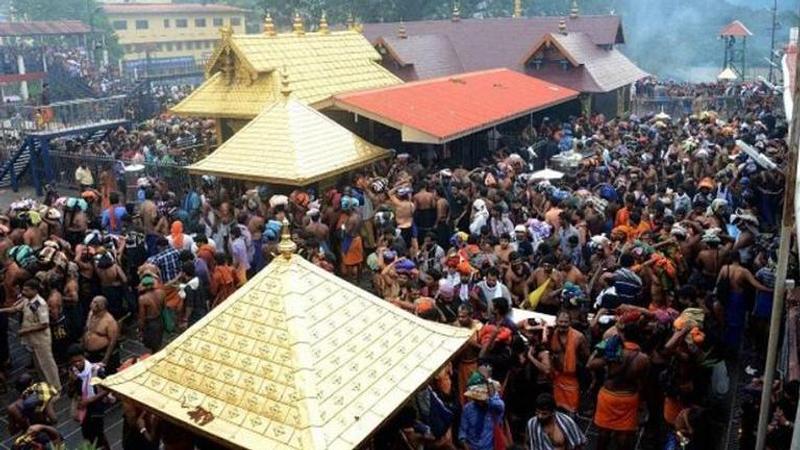Published 19:49 IST, January 12th 2020
Nine-judge SC bench to hear issue of women's entry in Sabarimala temple from Jan 13
A nine-judge Constitution bench of the Supreme Court is scheduled to commence on Monday hearing a batch of pleas on the issue of allowing women of all ages to enter Kerala's Sabarimala temple, along with other contentious issues of alleged discrimination against Muslim and Parsi women.

A nine-judge Constitution bench of the Supreme Court is scheduled to commence on Monday hearing a batch of pleas on the issue of allowing women of all ages to enter Kerala's Sabarimala temple, along with other contentious issues of alleged discrimination against Muslim and Parsi women.
The nine-judge bench headed by Chief Justice S A Bobde will hear a batch of 60 petitions. The other judges on the bench are Justices R Banumathi, Ashok Bhushan, L Nageswara Rao, M M Shantanagoudar, S A Nazeer, R Subhash Reddy, B R Gavai and Surya Kant.
The nine-judge bench has been set up after a five-judge bench headed by then CJI Ranjan Gogoi, by a 3:2 majority verdict, referred the matter to a larger bench while examining the review petition filed against the historic September 28, 2018 judgement which had allowed women of all ages to enter the Sabarimala temple.
Besides Justice Gogoi, Justices A M Khanwilkar and Indu Malhotra (the lone woman judge on the bench) were in majority while Justices R F Nariman and D Y Chandrachud had penned down a minority verdict on November 14, 2019.
Of the nine-judge bench, which will hear the matter from Monday, there is no judge from the previous bench. The top court had on January 6 issued a notice informing about listing of the batch of petitions seeking review of the 2018 judgement.
While referring the matter to a larger bench, the five-judge bench had however said that the debate about the constitutional validity of religious practices like bar on entry of women and girls into a place of worship was not limited to the Sabarimala case.
The top court said such restrictions are there with regard to entry of Muslim women into mosques and 'dargahs' and Parsi women, married to non-Parsi men, being barred from the holy fire place of an Agyari.
It said it was time for the apex court to evolve a judicial policy to do "substantial and complete justice".
Updated 19:49 IST, January 12th 2020




